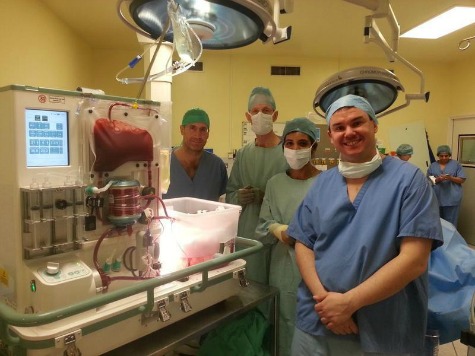For the first time, a donated liver has been kept viable outside the body of a donor and then later successfully transplanted into another human being.
British doctors, engineers, and surgeons made the announcement on Friday, acknowledging the procedure, which was performed at King’s College Hospital (KCH) in London last month, has been performed successfully on two patients, who are both doing well.
The new procedure preserves the liver at body temperature instead of putting it on ice and “perfuses” it with a new machine, supplementing the organ with oxygenated red blood cells.
Constantin Coussios, one of the machine’s co-inventors, said:
This device is the very first completely automated liver perfusion device of its kind. These first clinical cases confirm that we can support human livers outside the body, keep them alive and functioning on our machine and then, hours later, successfully transplant them into a patient. It was astounding to see an initially cold, grey liver flushing with color once hooked up to our machine and performing as it would within the body. What was even more amazing was to see the same liver transplanted into a patient who is now walking around.
Until now, the procedure had been to keep livers on ice so their metabolism would slow, but often the livers became damaged as a result. The existing method resulted in an average shelf-life of about 14 hours, possibly 20, before the organ deteriorated. More than 2,000 livers are lost to the process each year because of oxygen deprivation or the damage they get from being kept cold.
Doctors said that the new procedure could double the amount of available livers for transplant, which would be welcome news to the 30,000 patients who need a new liver in Great Britain and the U.S. There are currently only 13,000 available.
The new method could also prove a reprieve for livers which were deemed unfit for transplantation. The British team is planning to do 20 more liver transplant patients at KCH. If they go well, the device the team used could be on the market as early as 2014.

COMMENTS
Please let us know if you're having issues with commenting.